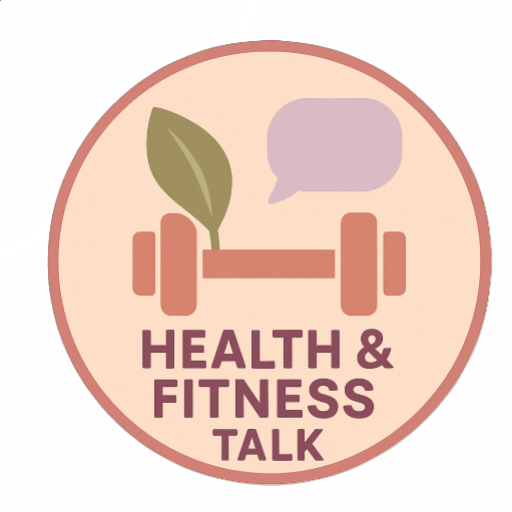Sleep Those Extra Pounds Off
When it comes to weight loss, most people focus on diet and exercise—but there’s another powerful factor that often gets overlooked: sleep. Quality rest is essential for hormonal balance, energy regulation, and overall metabolism. Without enough of it, your body struggles to shed fat efficiently, no matter how clean your diet or how consistent your workouts are. The truth is, sleeping well can be just as important as eating right and moving more when it comes to losing those extra pounds.
The Science Behind Sleep and Weight
Your body is a finely tuned system that relies on sleep to reset, repair, and regulate essential processes. When you don’t get enough rest, your metabolism slows down, appetite hormones become imbalanced, and cravings intensify.
Sleep deprivation increases levels of ghrelin, the hormone that stimulates hunger, and decreases leptin, the hormone that signals fullness. This imbalance makes you crave high-calorie foods, especially late at night when willpower is weakest. Studies show that people who sleep fewer than seven hours a night tend to consume more sugar and processed carbohydrates than those who rest adequately.
Poor sleep also raises cortisol, the stress hormone linked to fat storage, particularly around the abdomen. Elevated cortisol levels not only promote weight gain but also increase inflammation and insulin resistance—key factors in obesity and metabolic disorders.
Sleep and Metabolism
When you sleep, your body enters a repair mode, restoring tissues and balancing hormones. Deep sleep stages are particularly important for growth hormone secretion, which supports muscle repair and fat metabolism. Inadequate sleep disrupts this process, reducing the body’s ability to convert stored fat into usable energy.
In addition, lack of sleep affects glucose metabolism, making it harder for cells to use sugar efficiently. This causes higher blood sugar levels and promotes fat storage. Over time, chronic sleep deprivation can contribute to insulin resistance and increased risk of type 2 diabetes.
How Sleep Influences Food Choices
Ever notice how you crave junk food after a bad night’s rest? Sleep loss alters brain function, especially in the prefrontal cortex—the area responsible for decision-making and self-control. At the same time, it enhances activity in the brain’s reward centers, making high-fat and sugary foods more appealing.
When you’re tired, your body looks for quick energy sources. The result? Overeating and poor food choices. Getting enough rest helps keep cravings in check, improves willpower, and encourages more mindful eating throughout the day.
How Much Sleep Do You Really Need?
The optimal amount of sleep varies slightly for each person, but most adults need between 7 and 9 hours per night for full recovery. Consistency matters as much as duration—going to bed and waking up at the same time every day helps regulate your body’s internal clock (circadian rhythm), which supports metabolism and energy balance.
Teenagers and young adults may need up to 10 hours of sleep, especially if they are physically active or under stress. On the other hand, older adults might experience lighter sleep and should focus on improving quality through better habits and relaxation techniques.
The Role of Deep Sleep in Fat Burning
Deep, restorative sleep—particularly during non-REM stages—plays a key role in maintaining lean body mass. During these stages, the body releases human growth hormone (HGH), which aids in muscle development and fat utilization. Muscle tissue burns more calories at rest than fat tissue, so maintaining lean muscle mass directly supports weight management.
When deep sleep is interrupted, your body produces less HGH and more cortisol, leading to slower recovery, reduced muscle tone, and increased fat storage. In other words, poor sleep can undo hours of hard work in the gym.
Building a Sleep-Friendly Routine for Weight Loss
Improving your sleep habits is one of the easiest, most natural ways to support weight loss. Try incorporating these strategies into your daily routine:
• Stick to a schedule: Go to bed and wake up at the same time every day, even on weekends.
• Create a relaxing bedtime ritual: Wind down with reading, gentle stretching, or meditation instead of screens.
• Limit caffeine and alcohol: Both can interfere with sleep quality, especially if consumed late in the day.
• Keep your room dark and cool: Optimal sleep temperature ranges between 60°F and 67°F.
• Avoid late-night snacking: Eating close to bedtime can disrupt digestion and insulin balance.
• Get natural light exposure: Sunlight in the morning helps regulate your circadian rhythm and promotes nighttime sleepiness.
• Exercise regularly: Moderate activity improves sleep quality, but try not to work out intensely right before bed.
Napping Wisely
Short naps can boost alertness and energy but should be used strategically. A 20–30-minute nap in the early afternoon can help refresh your mind without affecting nighttime sleep. However, long or late naps can interfere with your sleep cycle and make it harder to fall asleep at night.
The Sleep–Stress Connection
Chronic stress is one of the biggest barriers to good sleep—and consequently, to weight loss. Stress triggers the release of cortisol and adrenaline, hormones that keep you alert and awake. Unfortunately, these same hormones promote fat storage, especially around the midsection.
To manage stress and improve sleep, try relaxation techniques like deep breathing, progressive muscle relaxation, or yoga. Mindfulness meditation has been shown to reduce both stress and insomnia, leading to improved weight control and emotional well-being.
Nutrition and Sleep Synergy
Certain foods and nutrients promote better sleep while also supporting metabolism:
• Magnesium-rich foods: such as bananas, almonds, and spinach, help relax muscles and improve sleep quality.
• Tryptophan-containing foods: like turkey, eggs, and oats, support serotonin and melatonin production.
• Complex carbohydrates: such as whole grains or sweet potatoes, help increase tryptophan availability.
• Herbal teas: chamomile, valerian root, and lemon balm tea promote relaxation and drowsiness.
Avoid heavy meals, sugar, or caffeine before bedtime, as they can disrupt your ability to fall and stay asleep.
Real Results Through Rest
People who improve their sleep habits often notice better energy levels, fewer cravings, improved mood, and faster fat loss—all without changing much else. The connection between rest and metabolism is powerful; consistent, high-quality sleep can make your diet and workouts far more effective.
One study found that dieters who got adequate sleep lost more body fat than those who were sleep-deprived, even when both groups consumed the same number of calories. Quality rest makes your body more efficient at burning fat and maintaining muscle—two key factors in long-term weight management.
A Healthier You Starts in Bed
Think of sleep as a cornerstone of wellness, not a luxury. It’s during those quiet hours that your body resets, heals, and prepares for the day ahead. Prioritizing rest helps you make better food choices, stay active, and maintain emotional balance—all essential for lasting weight control.
By sleeping those extra pounds off, you’re not just resting—you’re actively supporting your metabolism, hormones, and energy for a healthier, stronger version of yourself.
References
- Harvard Health Publishing. Sleep and Weight Gain: How Lack of Sleep Increases Fat Storage. https://www.health.harvard.edu/staying-healthy/sleep-and-weight-gain
- Mayo Clinic. How Sleep Affects Weight Loss. https://www.mayoclinic.org/healthy-lifestyle/adult-health/in-depth/sleep/art-20048379
- Johns Hopkins Medicine. The Connection Between Sleep and Weight. https://www.hopkinsmedicine.org/health/wellness-and-prevention/sleep-and-weight
- Cleveland Clinic. How Sleep Impacts Your Metabolism. https://health.clevelandclinic.org/how-sleep-affects-metabolism
- National Sleep Foundation. Healthy Sleep and Weight Management. https://www.sleepfoundation.org/physical-health/how-sleep-affects-your-weight





